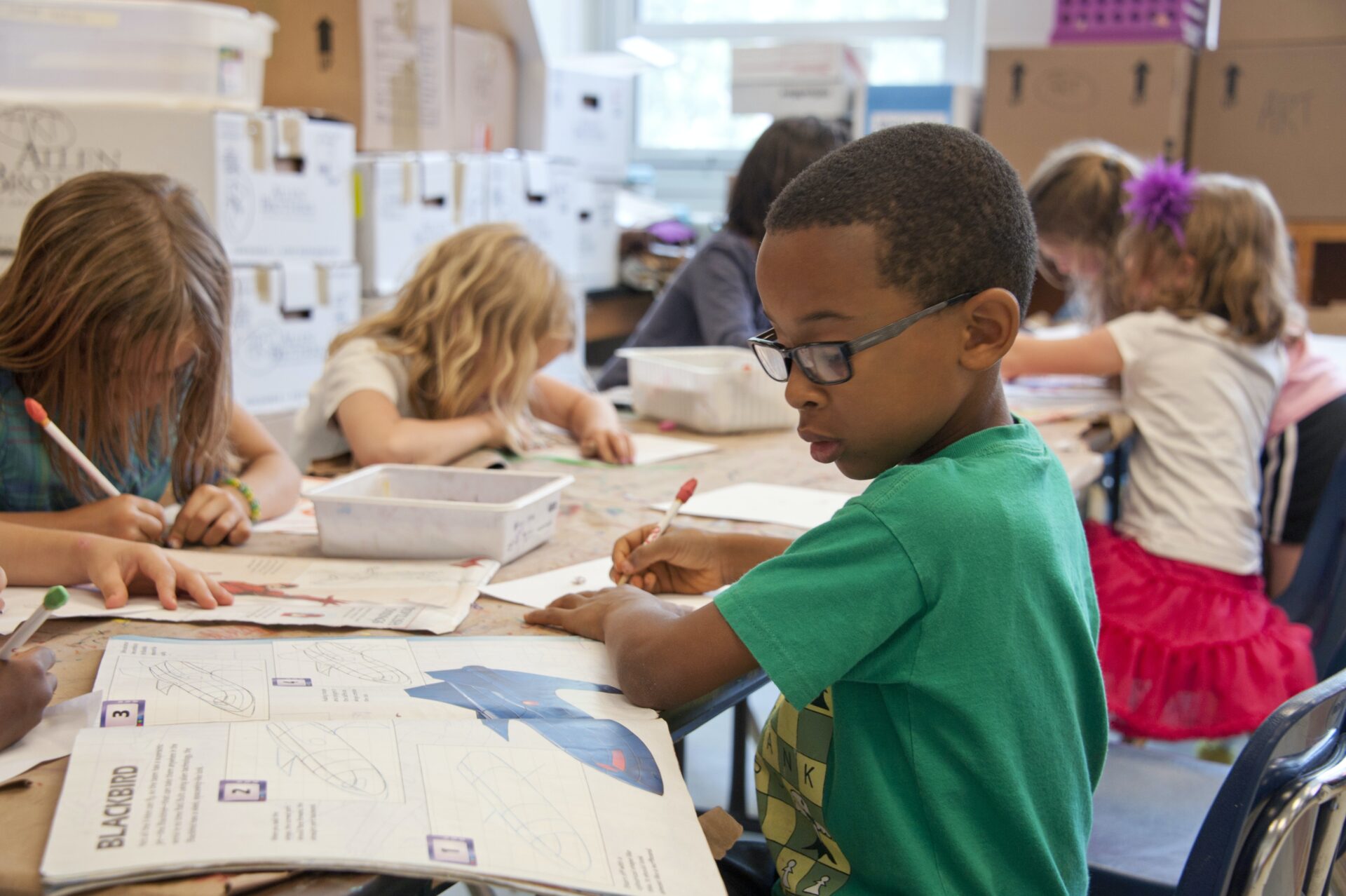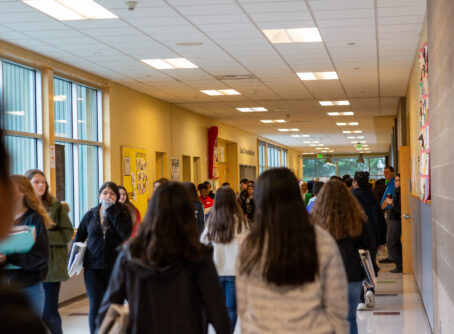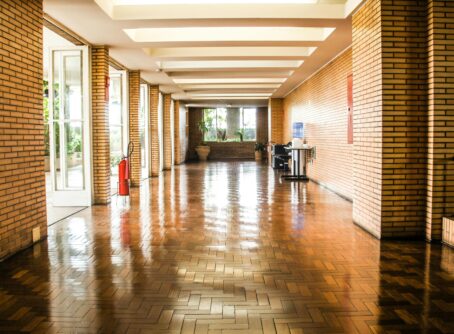
In recent months, debates about school vouchers have swept across state legislatures. The Supreme Court struck down Maine’s ban on using tax-payer funds for private, religious education in Carson v Makin last year. Chief Justice Roberts’ ruling argued that if Maine chose to subsidize private schools, then the option must be available for religious education as well. The case reveals part of the role of the government, as a referee-like entity with the ability to ensure a principled pluralist approach to education.
Principled pluralism, as defined by the Center for Public Justice, identifies the state as one actor among many responsible for giving equal treatment to religion in both public and private life. Within a principled pluralist model for education, school voucher programs allot state funds to help parents pay for their children’s private education.
School voucher policies are helpful for those seeking education from religious institutions, but also for children whose educational or social needs will not be met by the public schools available in their school district. Vouchers often provide a School vouchers provide educational choice for all families, giving them a necessary voice in their children’s education. As the Center for Public Justice states, “The family is the most basic of human institutions. Government should recognize and protect the family as an essential expression of its responsibility to uphold a just society.” One important way to support families is to allow them to make the decisions that are best for their children in school. And it is worth noting that school vouchers have the potential to be especially beneficial to low-income and minority families, giving them agency in this area that may otherwise not be present. To allow families of all income levels to access the education suitable for their children, more states should consider adopting school voucher programs and other public policies (such as the child tax credit) that give low-income families support for their kids.
This is a complex, and often emotion-filled, conversation, as the implementation of school vouchers has a direct impact on all children in our nation. One of the chief concerns that parents, teachers, and other citizens raise about school vouchers is that taxpayer dollars could mainly fund private, religious education, diminishing the efficacy of public education and weakening the “wall of separation” between church and state. The National Educators Association, the largest teachers’ union in the country, argues that vouchers would “siphon money from public education towards private education.” These voices also profess that the state, when it funds private, religious education, violates the establishment clause. These critiques make sense, and we must ensure that the implementation of school vouchers is not a zero-sum game leading to the downfall of public institutions. The Center for Public Justice’s Guideline on Education states, “With its support of schooling and its mandate that all children receive an education, government should concentrate on upholding public equity provisions, assuring that each child has fair access to quality education.” The state should equip all modes of education to thrive. as both parents of faith or no-faith students ought to have the opportunity to provide their children with a sound education.
In Disestablishment a Second Time, James Skillen — one of the founders and a former CEO of the Center for Public Justice — along with Rockne McCarthy and William Harper, wrote that many of the perceived problems with school vouchers arise largely due to the ambiguity of the words “secular” and “religious.” The authors write that because religion is derived from humans, not governments, and given that the state ought not to prefer one set of beliefs over another, there is no inherent problem with the state funding religious education. The state should support its diverse population, and one important aspect of this inherent variety is religious diversity.In fact, the best practice of the state executing justice and equity to all its citizens involves financing a range of educational institutions, and that financing does not infringe upon the First Amendment.
In 2021, EdChoice.org released a study on the efficiency and benefits of private education. As their study is crafted around the fact that many states are considering the expansion of their voucher programs, they compared private school children to their public school counterparts. The study looked at factors like test scores, participant attainment and budgets. Their overall conclusion is that students who attended private school on the voucher system did overwhelmingly better than their public school counterparts. This study shows some of the benefits that could manifest if more children, particularly those of low-income or minority families, had access to more personalized education. It also shows the need for Christians’ continued support of public institutions. After all, we should not be providing a mere “out” from public education, but the opportunity for students’ unique needs to be met by a range of educational options. It’s also important to note that school vouchers are only funded by a portion of state funds, and federal and local funds remain allocated to the public schools. Further, despite studies that show the benefits of vouchers, the actual societal benefit of vouchers continues to be debated in several state houses.
These benefits and potential complications are playing out in a growing number of states. Several state legislatures have already earmarked money for Educational Savings Accounts (ESA), where families can put a portion of the funds from the state toward their childrens’ education at a private school. Other states are looking at the best practices to balance ESAs and public-school funding. One of the first states to implement a wide-scale ESA was Arizona. In 2013, the Arizona legislature passed the first ESA in the nation, which guaranteed access to private schools using public funds, and then they expanded their program last September. Today, their program includes funding for several faith-based K-12 schools. The legislation exemplifies principled pluralism among civil society institutions by honoring families’ agency and making space for churches and other houses of worship to provide excellent and specialized to students who need it or could not otherwise afford it.
Texas is also at the forefront of the school voucher conversation and Governor Gregg Abbott has taken a different approach. Earlier this year, he proposed legislation that would provide $10,000 per family in school vouchers. The Texas House of Representatives failed to reach a consensus on the scope of this bill before the May 30 deadline, but Governor Abbott’s aspirations remain a major part of the school voucher discourse. Though Texas has made significant progress in terms of school choice, elements of Abbott’s agenda have alarmed critics, such as his push against “woke indoctrination in public schools.” In this way, Abbott is turning the focus from the vital role that the church and other religious institutions ought to play in education. Unlike in Arizona, faith-based schools aren’t the target issue.
These educational savings accounts and school voucher programs allow the state to uphold the religious freedom of its citizens by providing opportunities for families to choose the education their kids receive. The Center for Public Justice outlines that if the government prevents the free expression of its citizens, then there is “no equality present.” Government ought to provide opportunities for all its citizens to choose what schools they attend, as operating religious schools and being able to attend them is itself a form of free expression. This also honors the desires of the family in accordance with The Center for Public Justice’s Guiding Principle, which states that “parents bear the responsibility of nurturing their children’s education.” This also means that parents and guardians ought to recognize the critical role they have in their children’s education, regardless of where they attend school.
There is a dark side, though, to the topic of school choice. There are several historical factors at play. First, for many, private schools emerged in their communities not out of demand for additional schools or better education, but as a response to the calls for integrated public schools. Private schools became the haven for white flight.
However, in recent decades a greater acknowledgement of what racial justice requires has led some of those same institutions to repent of their legacy and affirm the value of diversity of many kinds in the classroom. As the fight for school vouchers continues to take center stage, school choice policies could present the possibility of a return to the segregation practices between private school and public school kids of the 20th century if policymakers, schools and families are not careful to ensure that these policies do not cause segregation, but rather create opportunity for low-income and at-risk students.
What this cautionary tale of separate and unequal education ought to teach us is that without careful forethought and attention, parents and schools can knowingly (or unknowingly) foment education inequities. However, when carefully crafted public policy includes a call for a pluralistic education system that is grounded in the diversity found within the American public, and also importantly, in freedom of conscience, school choice policies can provide better education options for every child. Education systems should not promote discrimination of any form, and can also avoid discrimination while remaining authentic to the particular education setting sought after by parents. Additionally, educational systems ought to be free to teach from the worldview of the plurality of the students they are serving while not blurring the lines between church and state.
When these three institutions — state, family and church — partner together, there is an opportunity for a fuller expression of principled pluralism in our communities, one in which families have the best school options for their kids, students receive the best possible education no matter their zip code and the government acknowledges both the private and public spheres of life without preferring one over the other.
Thomas Johnston (former CPJ intern ‘19) currently serves as a pastoral intern at Calvary Lutheran Church in Richland Hills, Texas.






